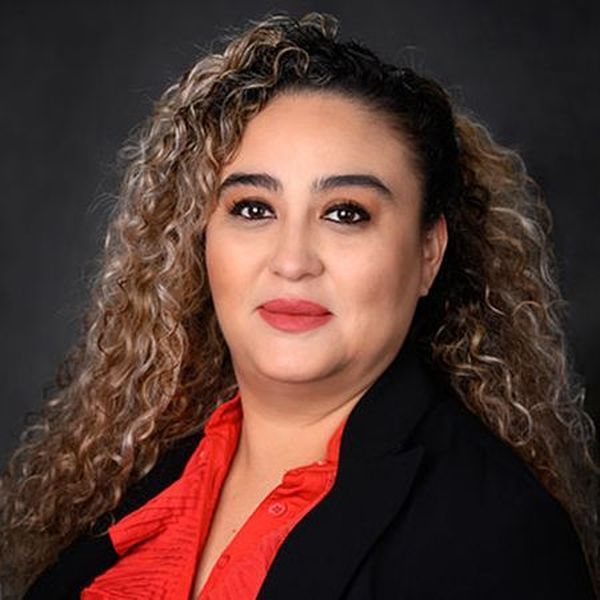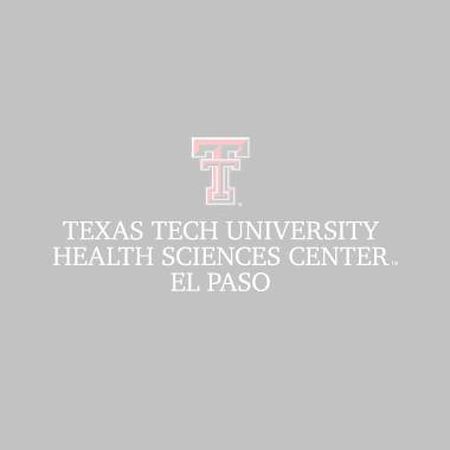Department of Pathology
Faculty
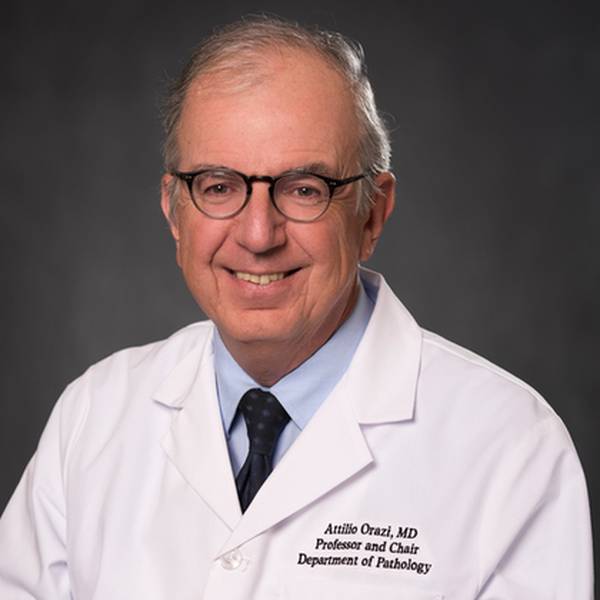
Professor and Chair
Medical Director, University Medical Center of El Paso Laboratories
Anatomic Pathology and Hematopathology
-
Attilio Orazi M.D., FRCPath. (Engl.), received his M.D. from University of Milan, Italy, and trained in anatomic pathology, hematopathology and clinical hematology first in the United Kingdom and later at the Istituto Nazionale Tumori of Milan, Italy. He is board certified by the American Board of Pathology in anatomic pathology and hematopathology. In addition, he is board certified in clinical and laboratory hematology (EU/ Italy/). He is a fellow of the Royal College of Pathologists (England).
-
Medical licensed in Texas (full, active), New York (inactive), Indiana (inactive). Overseas license of the GMC, London, U.K.
-
He lists 360 published contributions which include 285 peer-reviewed medical journal articles and 76 book contributions primarily on hematopathology, including 14 chapters/sections of the 2008 WHO Classification of Tumors of Hematopoietic and Lymphoid tissue and 20 of the 2016 updated versions published in July 2017 by the IARC press.
-
He is the lead editor of Knowles’ Neoplastic Hematopathology 3rd edition (Lippincott Williams & Wilkins, 2014), co-editor of Diagnostic Bone Marrow Hematopathology (Cambridge Univ. Press, 2020) and of Hematopathology 3d edition (Elsevier in preparation, 2020-1). He is the lead author of Illustrated Pathology of the Bone Marrow (Cambridge Univ. Press, 2006). He is co-author of Benign and Reactive Conditions of Lymph Node and Spleen (American Registry of Pathology 2009) and of Disorders of the Spleen 2nd edition (Philadelphia: WB Saunders Co, 1999).
-
He served as a senior advisor for the 2016 update of the 4th edition of the WHO Classification of Tumors of the Hematopoietic and Lymphoid Tissues and as a CAC member for both 2008 and 2016 WHO editions.
-
Orazi has lectured extensively nationally (including at USCAP, ASH and ISLH) and internationally (25 countries). Lists many invited speaking engagements and key note lectures. He is a member of several editorial boards. His research interests include diagnostic integration and prognostic assessment in bone marrow neoplasms with a focus on chronic myeloid neoplasms and diagnostic challenges in spleen pathology.
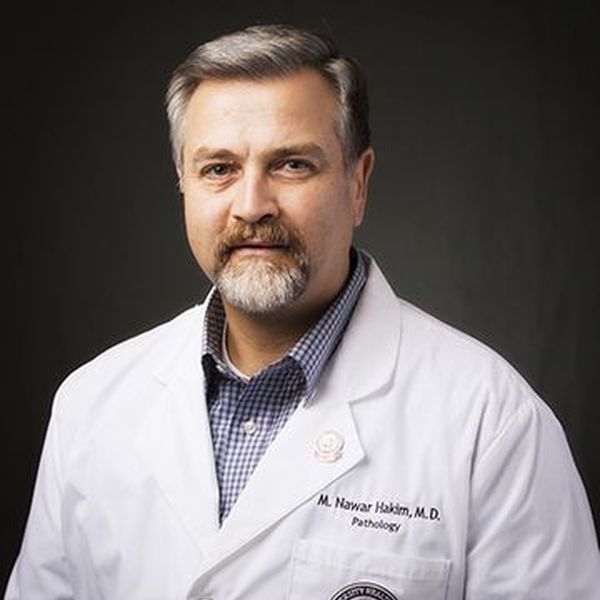
Associate Professor and Vice Chair for Anatomic Pathology
Medical Director, Lab. Services, The Hospitals of Providence Transmountain Campus
Anatomic and Clinical Pathology, Gastrointestinal, Pancreatic, and Liver Pathology
Dr. Mohamad Nawar Hakim is board certified in anatomic and clinical pathology. He graduated from Damascus University Faculty of Medicine in Damascus, Syria, where he grew up. After graduation, he immigrated to the United States where he pursued a combined anatomic and clinical pathology in Pittsburgh, Pennsylvania.
He is also fellowship trained in surgical pathology at the University of Wisconsin – Madison. He has extensive experience in the diversified field of pathology. He is experienced in private practice as well as the academic field of pathology. He joined Texas Tech Health El Paso in 2005. He held several leadership positions, to include director of the Hematology Laboratory, director of the Flow Cytometry Laboratory and vice chair for pathology. Currently he is the vice chair for anatomic pathology and the director of the anatomic pathology section. He is also the pathology residency program director.
Dr. Hakim enjoys teaching the practice of surgical pathology, interacting with residents and medical students as well as clinical colleagues. He likes working up challenging cases and discussing the findings of those cases.
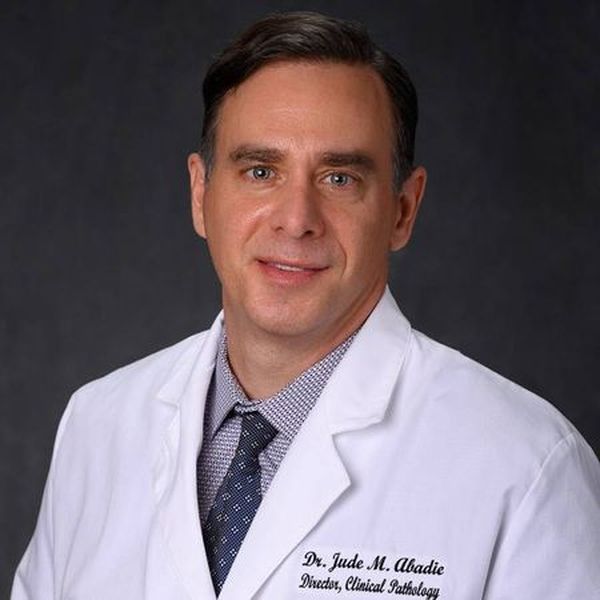
Professor of Pathology
Vice Chair & Director of Clinical Pathology
Associate Program Director; Pathology Residency Program
Technical Director; El Paso Public Health Laboratories
Dr. Jude Abadie grew up in New Orleans, Louisiana where he graduated from LSU Health Science Center, department of pathology. He is fellowship-trained and board certified in clinical chemistry, clinical toxicology, and clinical molecular genetics. Dr. Abadie served 21 years in the U.S. Army in pathology and lab medicine duty assignments including Madigan Army Medical Center in WA, Walter Reed Army Medical Center in DC, Tripler Army Medical Center in Hawaii, and Brook Army Medical Center in TX. He has held a life-long passion for teaching and working in the field of laboratory medicine. At Texas Tech Health El Paso and University Medical Center of El Paso, Dr. Abadie’s main focus in clinical pathology is on clinical laboratory testing, clinical consultant, director for our outlying clinics, and providing medical education to medical students, fellows, and residents.
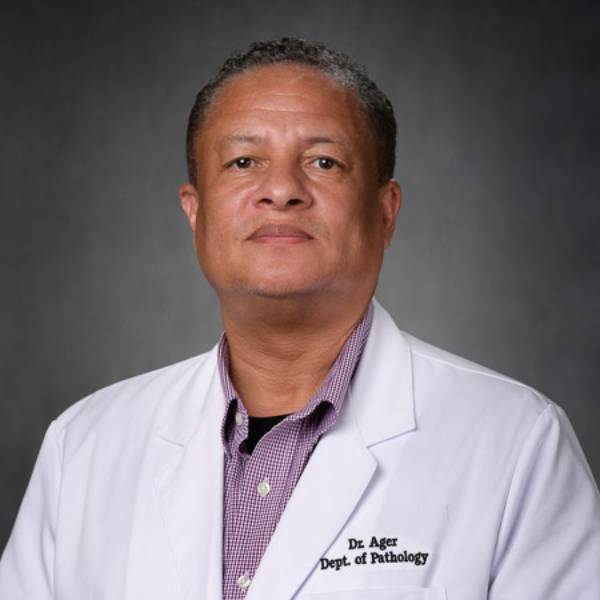
Assistant Professor
Director of Clinical Microbiology
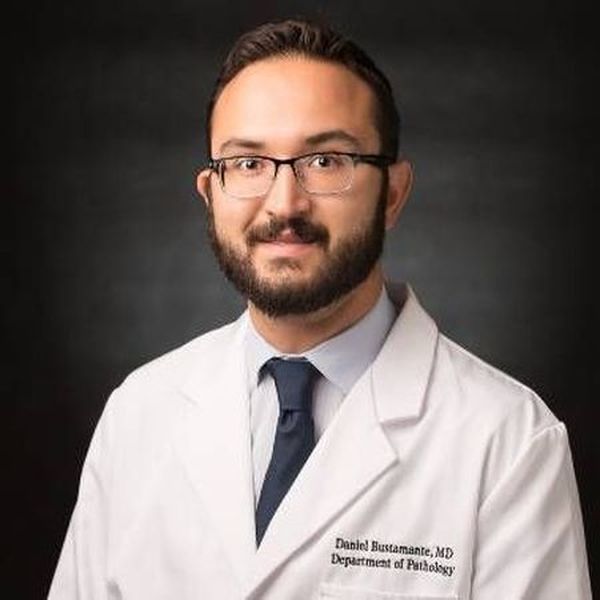
Associate Professor
Director, Pediatric Lab Services, El Paso Children’s Hospital
Anatomic and Clinical Pathology, Pediatric Pathology, and Hematopathology
Daniel Bustamante, M.D., is an assistant professor for the Department of Pathology at Texas Tech University Health Sciences Center El Paso and the Laboratory Medical Director for El Paso Children’s Hospital.
He is originally from El Paso and graduated Summa Cum Laude from the University of Texas at Austin with a Bachelor of Science degree in Human Biology. Upon graduation in 2007, he attended the University of Texas Southwestern Medical Center. In 2011, Dr. Bustamante graduated with a doctorate degree in medicine.
He completed his Anatomic and Clinical Pathology residency at the University Of New Mexico Department of Pathology in 2015. Following residency, he pursued a Hematopathology fellowship also at the University of New Mexico Health Science Center. In 2016, he completed his fellowship studies that focused on diagnosis of hematopoietic neoplasms and associated benign hematopoietic entities.
Dr. Bustamante is currently practicing at El Paso Children’s Hospital and specializes in the diagnosis of leukemia and lymphoma. He also serves as the Laboratory Medical Director.
Dr. Bustamante is board certified in Anatomic and Clinical Pathology as well as Hematopathology by the American Board of Pathology.

Assistant Professor
Hematopathology and Molecular Genetic Pathology
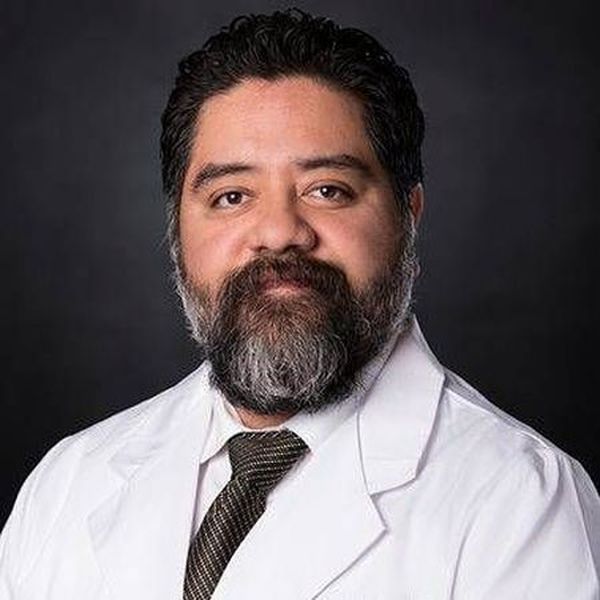
Assistant Professor
Program Director, Pathology Residency
Medical Director, Anatomic Pathology, University Medical Center of El Paso
Director of Autopsy Pathology, University Medical Center of El Paso
Anatomic and Clinical Pathology, Breast, and Gynecologic Pathology
Dr. Roberto G. Gamez was born in Houston TX, and grew up in Cd. Juarez, Chihuahua, Mexico, where he attended Medical School at U.A.C.J. graduating in 2002. After that Dr. Gamez did a Master’s in Public Health at I.U.P.U.I. in Indianapolis, IN. Then he did his Anatomic and Clinical Pathology residency training at University of Minnesota, in Minneapolis, MN. Then did his fellowship training at The Mayo Clinic, in Rochester Minnesota, where he completed a Surgical Pathology Fellowship and a Multidisciplinary Breast Pathology Fellowship. He then worked at Loyola University Medical Center in Maywood IL, where he was that Director of Breast Pathology and the Director of Autopsy Pathology. At TTUHSC/UMC Dr. Gamez works closely with our other pathologists, breast imaging specialists, breast surgeons and oncologysts, gynecologists and GYN/ONC surgeons to provide high-quality diagnostic women’s health pathology and general pathology services. His research interest and areas of expertise are in breast and gynecologic pathology.

Assistant Professor
Blood Bank/ Transfusion Medicine
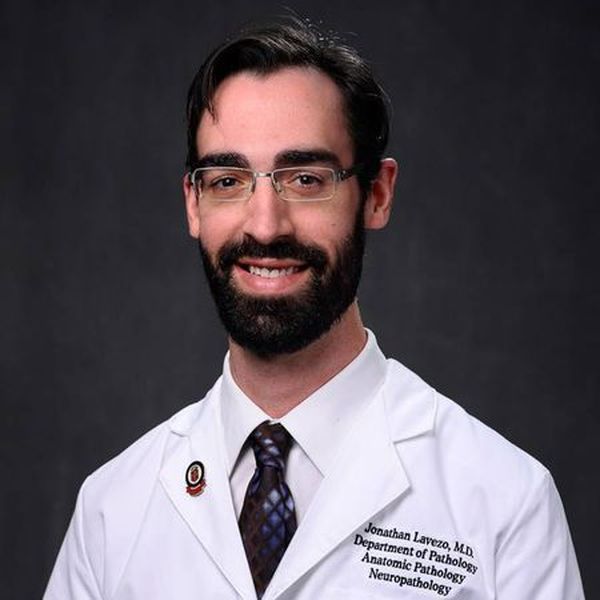
Assistant Professor
Director, Neuropathology, University Medical Center of El Paso
Director, Tumor Tissue Biorepository
Anatomic Pathology and Neuropathology
Dr. Jonathan Lavezo grew up in Denton, Texas, where he completed a chemistry and biochemistry
double major at the University of North Texas. He went on to attend El Paso’s own
Paul L. Foster School of Medicine, graduating in 2015.
Dr. Lavezo did his residency and fellowship training at Stanford University, where
he completed a combined program in anatomic pathology and neuropathology, as well
as an additional year of surgical pathology fellowship focusing on head and neck,
cardiothoracic, and soft tissue pathology.
At Texas Tech Health El Paso and UMC, Dr. Lavezo will work closely with pathologists, neurosurgeons, neurologists and psychiatrists to provide high-quality diagnostic neuropathology. He will also focus on teaching neuropathology to medical trainees and staff, in addition to promoting collaborative neuropathology related research.
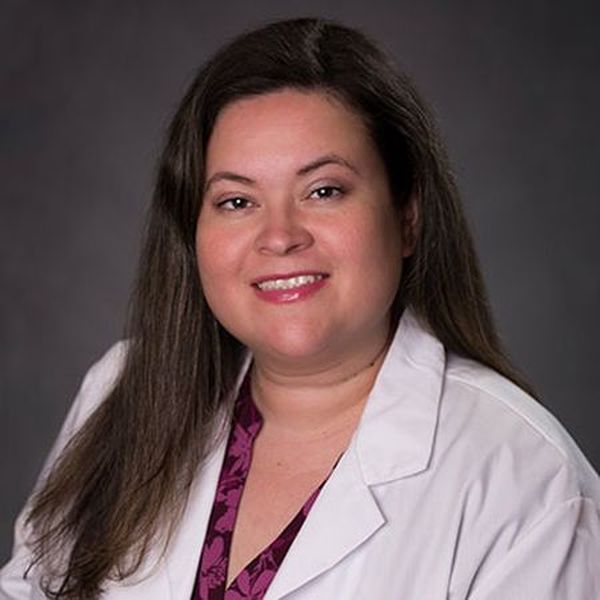
Assistant Professor
Anatomic and Clinical Pathology
Dr. Angelica Padilla is a board certified anatomical and clinical pathologist at Texas Tech Paul Foster School of Medicine. She obtained her Bachelor of Science in Microbiology and Chemistry at the University of Texas at El Paso. She then obtained her medical degree from UT Houston Mc Govern School of Medicine in Houston, TX and continued her medical training as a pathology resident at UT Houston Mc Govern School of Medicine. Upon completing her residency, Dr. Padilla completed two fellowships in Surgical Pathology and Breast/Gynecological Pathology at Houston Methodist Hospital.
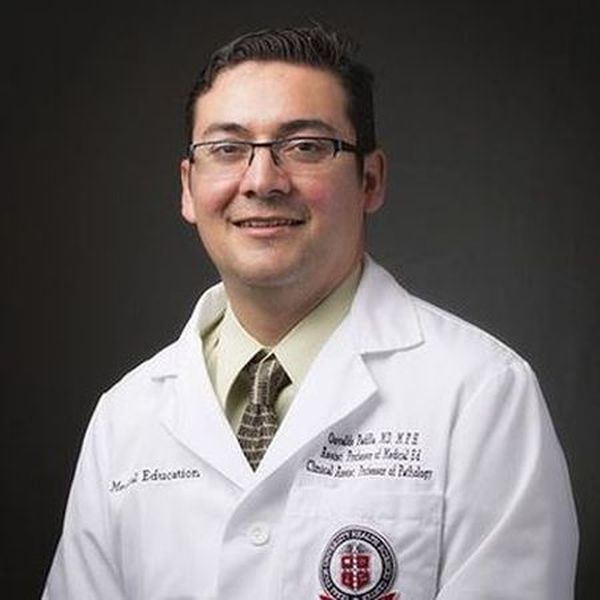
Associate Professor
Director, Hematopathology, University Medical Center of El Paso
Anatomic and Clinical Pathology and Hematopathology
Dr. Osvaldo Padilla is currently an associate professor at the department of pathology, Texas Tech Health Science Center in El Paso, TX. He is also a native El Pasoan, who graduated from the University of Texas at El Paso (UTEP), and then attended the UT Houston McGovern School of Medicine in Houston, TX. He received a master’s in public health (MPH) from Tufts University in Boston, MA, and then received post-graduate residency training in both anatomical and clinical pathology from the Tufts New England Medical Center in Boston, MA. He then did two pathology fellowships, including general surgical pathology and hematopathology at Hartford Hospital in Hartford, Connecticut. He currently is board certified in anatomical, clinical pathology, and hematopathology.
His interests includes both medical education and hematopathology research. He is one of the founding medical education faculty for the Paul L. Foster School of Medicine (El Paso, TX.) for which he has been involved with teaching since its inception in 2009 to the present. He served at clerkship director for the pathology elective rotations, and he has participated in numerous abstract presentations involving medical students and residents for national and international conferences. He also received an outstanding faculty teaching award in 2014, and recognitions for his involvement as a reviewer in the Medical Science Educator Journal. He is also involved with the Group for Research in Pathology Education (GRIPE) interest group within the International Association for Medical Science Educator for which he was chosen as a feature GRIPE member and has served in numerous leadership positions, including secretary, vice president, and chair of GRIPE.
His accomplishments in academia include helping to establish a hematology bone marrow biobank, presenting in numerous national and international conferences, and publishing numerous medical education and hematopathology articles.
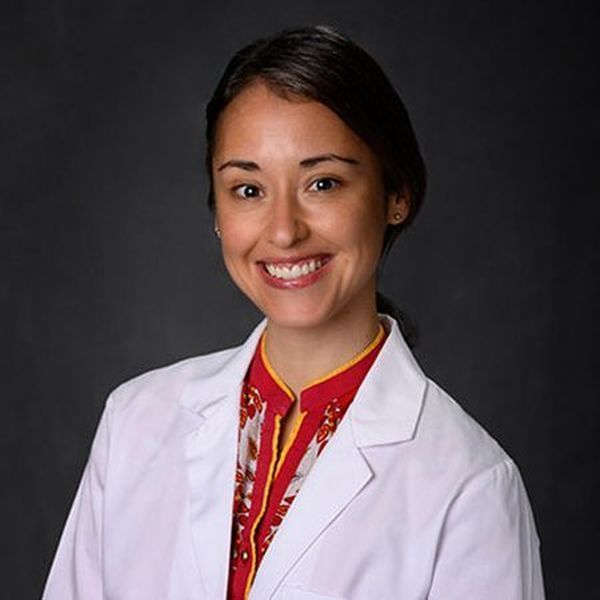
Assistant Professor
Division of Ophthalmology and Ocular Sciences
Ocular and Optic Nerve Pathology
Dr. Claudia Maria Prospero Ponce is a Board-certified Ophthalmologist who graduated from Ignacio A. Santos School of Medicine, Monterrey Institute of Technology and Higher Education (TEC de Monterrey), Monterrey Mexico, considered one of the best Medical Schools in Mexico for its national and international rotations and innovative biomedical research.
She enrolled in pre-residency research at The Cole Eye Institute, Department of Refractive Surgery at the Cleveland Clinic, The Retinal Vascular Center at Charles A. Garcia and Associates, and the Department of Pathology and Genomic Medicine at Houston, TX. She completed her Internal Medicine internship and her residency in Ophthalmology at The University of Arizona in Tucson AZ.
She received her ACGME-Ophthalmic Pathology Fellowship at Department of Pathology and Genomic Medicine at Houston Methodist Hospital in 2018, mentored by Dr Patricia Chevez-Barrios, a world-renowned Ocular Pathologist.
Areas of specialty include histopathological assessment of:
- Eyelid, periorbital and orbital tissue including eyelid tumors, neoplastic and non-neoplastic (chalazion, melanoma, etc), orbital inflammation (infection and autoimmune), orbital neoplasias.
- Ocular surface pathologies such as pterygiums, conjunctival neoplasia such as melanoma or squamous cell carcinoma, among others.
- Corneal pathologies such as ulcers (corneal scrapping and biopsy interpretation), full and partial (ie DSAEK) corneal transplant and corneal dystrophies.
- Enucleation interpretation for intraocular malignancies (Retinoblastoma, Melanoma, etc), infection (endophthalmitis), inflammation (sympathethic ophthalmia) and blind painful eye.
- Exenteration interpretation for orbital malignancies and infection
- Interpretation of Temporal artery biopsies
Additional Fellowship training in Neuro-Ophthalmology Houston Methodist in2017 and currently practices at Texas Tech Health El Paso with expertise on: optic nerve pathologies (i.e. ischemic optic neuropathy, optic neuritis, neuro-retinitis), visual field and visual acuity loss, unexplained and/or transient visual loss, double vision, ocular motility abnormalities, among others.
Staff
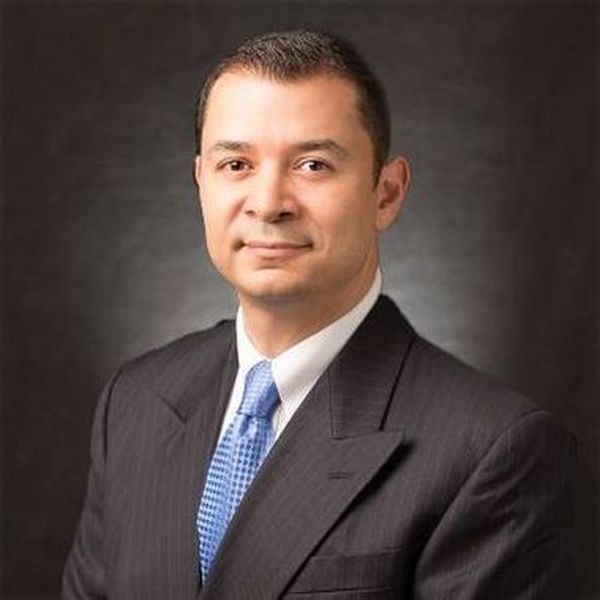
Senior Clinical Department Administrator

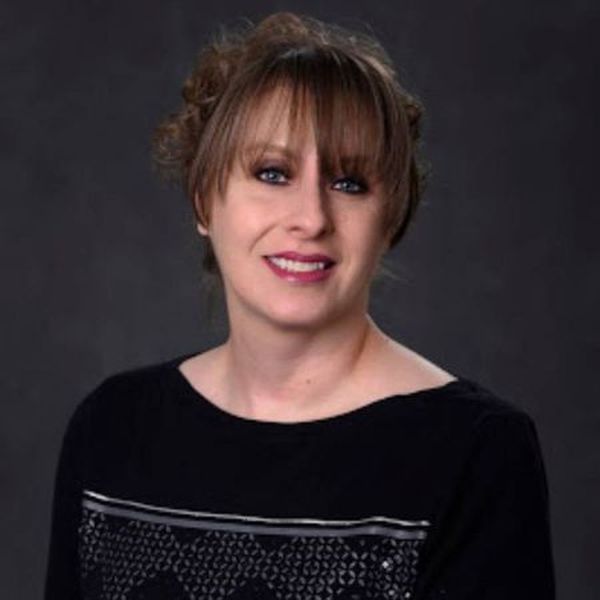

Sr. Medical Secretary

